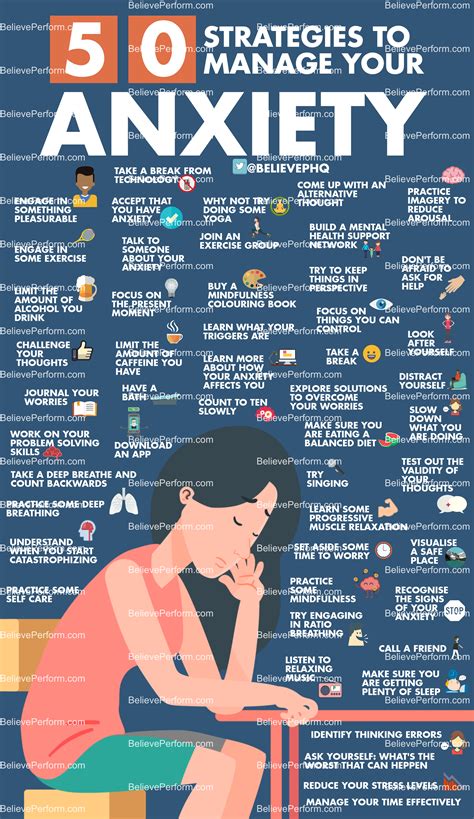Discovering effective strategies to heighten the tranquility and profundity of your nightly repose is an endeavor that many individuals strive for. Acknowledging the significance of a rejuvenating slumber is fundamental, as it fosters optimal physical and mental well-being. Fortunately, there are various measures that can be incorporated into your routine to dispel restlessness and infuse your sleep with unmatched excellence.
Exploring the vast realm of sleep improvement techniques and practices unveils an array of possibilities for individuals seeking a more profound and replenishing restfulness. By shifting the focus of one's attention to alternative pathways that offer potential solutions, a transformative shift in sleep quality can be realized. The quest to optimize slumber transcends the conventional methods, inviting individuals to embark on a journey towards ethereal sleep experiences.
Embarking on this journey entails a conscious, intentional commitment to bridging the gaps hindering the path to a revitalizing sleep. By exploring and tailoring strategies that have proven effective for others, one can embark on a personal exploration of their own sleep patterns and preferences. With an open mind and a willingness to experiment, unparalleled sleep satisfaction is within reach.
Create a Soothing Bedtime Routine

Establishing a calming nighttime ritual can greatly contribute to improving the overall quality of your sleep. By following a consistent and soothing routine before bed, you can promote relaxation, reduce stress, and prepare your mind and body for a peaceful night's rest.
Step 1: Set a specific time to start your bedtime routine, ideally allowing for at least an hour before lights out. This will give you ample time to unwind and detach from the day's activities.
Step 2: Begin by disconnecting from electronic devices such as smartphones, tablets, and laptops. The bright screens and stimulating content can disrupt your body's natural sleep-inducing mechanisms.
Step 3: Instead of relying on screens, engage in activities that promote relaxation and calmness. Consider reading a book, listening to soft music, or practicing gentle stretching exercises or yoga poses.
Step 4: Create a sleep-friendly environment by dimming the lights, closing the curtains or blinds, and using a white noise machine or calming sounds to drown out any disturbances.
Step 5: Prioritize self-care by incorporating a soothing self-care routine into your bedtime ritual. This could involve applying a scented moisturizer, indulging in a warm bath or shower, or practicing mindfulness or meditation exercises.
Step 6: Avoid consuming caffeine or stimulating substances close to bedtime, as these can interfere with your ability to fall asleep easily. Instead, opt for a herbal tea, such as chamomile or lavender, which can have calming effects on the body.
Step 7: Finally, make sure your bedroom is conducive to sleep. Keep the temperature cool, invest in a comfortable mattress and pillow, and consider using blackout curtains or an eye mask to block out any excess light.
By following these steps and creating a soothing bedtime routine, you can significantly enhance your sleep quality and wake up feeling refreshed and rejuvenated each morning. Remember, consistency is key, so make an effort to stick to your routine every night for optimal results.
Creating a Calming Environment: Dark and Quiet Bedroom
When it comes to promoting a good night's sleep, the environment in which you rest plays a crucial role. The ambience of your bedroom can significantly impact your sleep quality, and creating a dark and quiet space can help optimize your restful nights.
Dimming the lights: It is important to keep your bedroom as dark as possible during your sleep hours. Excessive light exposure can disrupt your natural circadian rhythm, making it harder for you to fall asleep and stay asleep. Use blackout curtains or blinds to block out any external sources of light from windows or streetlights. Additionally, consider using low-wattage or warm-colored light bulbs to create a soothing and relaxed atmosphere before bed.
Silencing the noise: Unwanted noise can prevent you from achieving deep and restorative sleep. Noisy neighbors, traffic sounds, or even the ticking of a clock can disrupt your sleep patterns. To minimize noise disturbances, you can use earplugs or invest in a white noise machine that produces soothing sounds like rain or ocean waves, effectively masking the unwanted noises. If possible, move any electronic devices emitting noise outside the bedroom or switch them off completely to create a serene and peaceful environment.
The power of darkness and tranquility: Creating a dark and quiet bedroom encourages a serene and tranquil environment that promotes relaxation and better sleep. By eliminating distractions and minimizing sensory stimulations, you can pave the way for a restful slumber and enhance overall sleep quality. So, take the necessary steps to keep your bedroom as dark and quiet as possible, and you'll be on your way to enjoying a truly rejuvenating sleep experience.
Establish a Consistent Sleep Schedule

Creating a regular sleep routine is essential for improving the quality of your sleep. By sticking to a consistent sleep schedule, you can train your body to recognize when it's time to sleep and wake up, ultimately optimizing your body's natural sleep-wake cycle.
- Set a specific bedtime and wake-up time:
- Try to go to bed and wake up at the same time every day, even on weekends or days off.
- Avoid drastic changes to your sleep schedule, as this can disrupt your body's rhythm.
Consistency signals to your brain and body that it's time to wind down or wake up, making it easier to fall asleep and wake up feeling refreshed. It helps regulate hormones and promotes better sleep quality throughout the night.
Additionally, consistency in your sleep schedule can improve your daily energy levels, mood, and overall productivity. It allows your body to establish a regular rhythm, syncing with the natural light-dark cycles of the day.
- Create a bedtime routine:
- Engage in relaxing activities before bed, such as reading, taking a warm bath, or practicing gentle stretching.
- Avoid stimulating activities close to bedtime, such as using electronic devices or consuming caffeine.
A consistent sleep schedule combined with a soothing bedtime routine helps prepare your body for sleep and primes your mind for relaxation. It sends signals to your brain that it's time to unwind, promoting a smoother transition into a restful night's sleep.
Incorporating these practices and making them a regular part of your daily routine can significantly improve your sleep quality and overall well-being.
Reduce Exposure to Screens Before Going to Bed
Modern digital devices, such as smartphones, tablets, and computers, have become an integral part of our daily lives. While they bring convenience and entertainment, their excessive use can negatively impact our sleep quality. It is crucial to limit screen time before bed to ensure a restful and uninterrupted sleep.
Excessive exposure to screens before going to bed can disrupt our natural sleep-wake cycle. The blue light emitted by electronic devices suppresses the production of melatonin, the hormone responsible for regulating sleep. This, in turn, makes it harder for us to fall asleep and achieve the deep restorative sleep we need to wake up refreshed and energized.
By reducing screen time before bed, we are allowing our bodies to naturally wind down and prepare for sleep. Instead of scrolling through social media or watching videos, it is beneficial to engage in activities that promote relaxation, such as reading a book, listening to calming music, or practicing mindfulness techniques. Establishing a screen-free bedtime routine can have significant positive effects on our sleep quality and overall well-being.
Creating a conducive environment for quality sleep includes keeping screens out of the bedroom. The bedroom should be a sanctuary dedicated to sleep, relaxation, and intimacy. Removing electronic devices from this space reduces the temptation to use them and reinforces the association between the bedroom and restful sleep.
| Benefits of Limiting Screen Time Before Bed |
|---|
| Improved sleep quality |
| Enhanced cognitive function |
| Reduced risk of sleep disorders |
| Increased productivity during the day |
In conclusion, reducing exposure to screens before going to bed is essential for improving sleep quality and overall well-being. By implementing screen-free bedtime routines and creating a technology-free environment in the bedroom, we can create the conditions necessary for a restful and rejuvenating night's sleep.
Create a Comfortable Sleep Environment

Getting a good night's rest starts with creating a comfortable sleep environment. The space where you sleep plays a significant role in the quality of your sleep. Designing a sleep-friendly environment involves optimizing factors such as noise level, lighting, temperature, and overall physical comfort.
Noise level: Eliminate or minimize distractions that can disrupt your sleep, such as loud sounds or a noisy neighborhood. Consider using earplugs, white noise machines, or soundproof curtains to create a quieter atmosphere.
Lighting: Control the amount of light in your bedroom to signal your body that it's time to sleep. Use blackout curtains or blinds to keep out external light sources, and avoid exposure to bright screens from electronic devices before bed.
Temperature: Keep your bedroom at a comfortable temperature that promotes sleep. Optimal room temperature varies for individuals, but it is generally recommended to maintain a slightly cool environment, around 65 to 68 degrees Fahrenheit (18 to 20 degrees Celsius).
Physical comfort: Ensure that your sleeping surface is comfortable and supportive. Invest in a quality mattress and pillows that suit your sleeping preferences. Use breathable, soft bedding materials that keep you cozy without causing you to overheat or feel too cold.
By creating a sleep environment that is conducive to restful sleep, you can improve the overall quality of your sleep and wake up feeling refreshed and rejuvenated.
Avoid Stimulants Close to Bedtime
When it comes to getting a good night's sleep, it's important to be mindful of the substances we consume in the evening hours. Certain stimulants can interfere with the body's natural process of winding down and can make it difficult to fall asleep and stay asleep throughout the night.
One of the key culprits to avoid close to bedtime is caffeine. This popular stimulant is found in coffee, tea, energy drinks, and even some medications. Its effects can last for several hours, so it's best to limit or eliminate caffeine intake in the late afternoon and evening.
In addition to caffeine, other stimulants to be aware of include nicotine and alcohol. Nicotine, found in cigarettes and other tobacco products, acts as a stimulant and can disrupt sleep patterns. Similarly, while alcohol may initially make you feel drowsy, it can disrupt the quality of sleep later in the night.
Instead of relying on stimulants to stay awake or wind down, consider adopting healthier habits. Engaging in relaxation techniques like deep breathing exercises or meditation can help prepare the body for sleep. Creating a calming bedtime routine, such as reading a book or taking a warm bath, can also signal to the body that it's time to rest.
By avoiding stimulants close to bedtime and incorporating relaxation techniques into your evening routine, you can improve your sleep quality and wake up feeling refreshed and rejuvenated.
Engage in Regular Physical Activity

Regular physical activity plays a vital role in promoting optimal sleep patterns and overall well-being. Physical exercise not only benefits the body but also has a profound impact on sleep quality. Engaging in various forms of exercise helps enhance sleep by regulating hormone levels, reducing stress and anxiety, and promoting relaxation.
Incorporating regular physical activity into your daily routine is a proactive approach to improve your sleep patterns and ensure a restful night's sleep. Whether it's going for a brisk walk, cycling, swimming, or participating in a favorite sports activity, any form of exercise can make a significant difference in sleep quality.
By raising your heart rate and activating your muscles, physical activity increases the production of endorphins, which are known as "feel-good" neurotransmitters. These endorphins help combat stress and anxiety, allowing your mind to relax and prepare for sleep. Additionally, exercise promotes the release of serotonin, a neurotransmitter that regulates mood and contributes to better sleep quality.
Engaging in physical activity during the day also helps regulate your body's internal clock, known as the circadian rhythm. Regular exercise can synchronize your internal clock with external cues such as daylight, improving the timing and duration of sleep.
It's important to note that exercising too close to bedtime can have the opposite effect on sleep quality. High-intensity workouts stimulate the body and mind, making it difficult to wind down and fall asleep. Therefore, it is recommended to avoid vigorous exercise within a few hours of bedtime. Instead, aim for early evening or late afternoon workouts to give your body enough time to cool down and prepare for restful sleep.
In conclusion, incorporating regular physical activity into your daily routine can significantly enhance sleep quality. Engaging in various forms of exercise helps regulate hormone levels, reduce stress and anxiety, promote relaxation, synchronize your internal clock, and contribute to better sleep patterns overall. So, lace up your shoes and get moving for a good night's sleep!
Practice Relaxation Techniques
In the pursuit of achieving a more restful and rejuvenating sleep experience, it is essential to explore and incorporate various relaxation techniques into your daily routine. By adopting these methods, you can create a conducive environment for relaxation and ultimately enhance the quality of your sleep. Engaging in relaxation techniques promotes tranquility and helps to alleviate stress, anxiety, and restlessness, paving the way for a peaceful night's sleep.
One effective relaxation method is deep breathing exercises. Deep breathing involves taking slow, deliberate breaths, focusing on the inhalation and exhalation process. By engaging in deep breathing, you can slow down your heart rate, activate the body's relaxation response, and quiet your mind, promoting a sense of calmness and mental clarity that can facilitate a more serene and uninterrupted sleep.
Another technique that can aid in enhancing sleep quality is progressive muscle relaxation (PMR). PMR involves systematically tensing and then relaxing each muscle group in your body, starting from your toes and progressively moving up to your head. This practice helps release tension and stress from your muscles, leading to a deep state of relaxation and facilitating a more comfortable and peaceful sleep experience.
Meditation and mindfulness practices are also invaluable tools that can contribute to improved sleep quality. In meditation, you focus your attention and eliminate the stream of thoughts that often keeps you awake at night. Mindfulness, on the other hand, involves being fully present in the moment and acknowledging and accepting your thoughts and feelings without judgment. Both practices can help calm a racing mind, reduce anxiety, and promote a sense of tranquility that is conducive to falling asleep and staying asleep throughout the night.
Additionally, incorporating activities or rituals that promote relaxation before bedtime can have a profound impact on your sleep quality. This may include engaging in a warm bath or shower, listening to calming music, reading a book, or practicing gentle stretching exercises. By establishing a consistent pre-sleep routine that incorporates these relaxation practices, you can signal to your body that it is time to unwind and prepare for a peaceful and restorative sleep.
Incorporating relaxation techniques into your daily routine can significantly enhance the quality of your sleep. By exploring and adopting various methods such as deep breathing, progressive muscle relaxation, meditation, mindfulness, and pre-sleep rituals, you can create a serene environment that promotes tranquility and fosters a more restful and rejuvenating sleep experience. Empower yourself to embrace these relaxation techniques and embark on a journey towards improving your sleep today!
Manage Stress and Anxiety

In today's busy and hectic world, managing stress and anxiety is crucial for improving sleep quality. Finding effective strategies to reduce stress levels can have a profound impact on your overall well-being and sleep patterns. By implementing healthy habits and adopting coping mechanisms, you can achieve a more restful and rejuvenating sleep.
1. Practice Mindfulness Meditation
Mindfulness meditation is an effective technique for managing stress and anxiety. By focusing your attention on the present moment, you can let go of worries and calm your mind. Dedicate a few minutes each day to sit quietly, close your eyes, and focus on your breath. This simple practice can help alleviate stress and promote relaxation, allowing for a better night's sleep.
2. Establish a Relaxing Nighttime Routine
A relaxing nighttime routine can create a peaceful atmosphere and signal your body that it's time to wind down. Consider activities such as taking a warm bath, reading a calming book, or practicing gentle stretches. Avoid stimulating activities, such as using electronic devices or engaging in intense exercise, as they can interfere with the quality of your sleep and contribute to increased stress levels.
3. Engage in Regular Physical Activity
Regular physical activity is not only beneficial for your physical health but also for managing stress and anxiety. Engaging in activities like walking, jogging, or practicing yoga can help reduce stress levels, release tension, and improve sleep quality. Aim for at least 30 minutes of moderate exercise most days of the week to experience the positive effects on your sleep patterns.
4. Create a Calm and Comfortable Sleep Environment
Your sleep environment plays a vital role in promoting relaxation and quality sleep. Keep your bedroom cool, dark, and quiet, creating an optimal atmosphere for restorative sleep. Consider using blackout curtains, earplugs, or a white noise machine to block out any external disturbances that may contribute to stress or anxiety before bedtime.
5. Seek Support and Counseling
If stress and anxiety persist, it may be helpful to seek support from a professional counselor or therapist. They can provide guidance and teach techniques tailored to your specific needs. Talking about your worries and concerns can help alleviate stress and provide you with effective coping strategies to manage anxiety, ultimately improving your sleep.
Conclusion
By managing stress and anxiety effectively, you can create a positive impact on your sleep quality and overall well-being. Implementing mindfulness meditation, establishing a relaxing nighttime routine, engaging in regular physical activity, creating a calm sleep environment, and seeking support are important steps towards achieving a restful and rejuvenating sleep.
FAQ
What are some tips to improve sleep quality?
There are several tips to improve sleep quality. Firstly, establish a consistent sleep schedule by going to bed and waking up at the same time every day. Secondly, create a relaxing bedtime routine by engaging in activities such as reading or taking a warm bath. Additionally, make sure your sleep environment is comfortable and free of distractions, such as excessive noise or bright lights. Finally, avoid stimulants like caffeine or electronics close to bedtime, as they can interfere with sleep.
How can a consistent sleep schedule improve sleep quality?
A consistent sleep schedule helps regulate your body's internal clock, making it easier to fall asleep and wake up at the desired times. When you go to bed and wake up at the same time every day, your body becomes accustomed to a certain sleep routine, promoting better sleep quality. Irregular sleep patterns, on the other hand, can disrupt your circadian rhythm, leading to difficulties falling asleep or staying asleep throughout the night.
Why is it important to have a relaxing bedtime routine?
A relaxing bedtime routine helps signal to your body and mind that it's time to wind down and prepare for sleep. Engaging in calming activities, such as reading, meditating, or listening to soft music, can help reduce stress and anxiety, allowing you to transition to a more sleep-friendly state. By incorporating a bedtime routine into your daily habits, you create associations between these activities and sleep, making it easier to relax and fall asleep faster.
How does the sleep environment affect sleep quality?
The sleep environment plays a significant role in sleep quality. It should be quiet, dark, and at a comfortable temperature. Excessive noise or bright lights can disrupt sleep and make it difficult to fall asleep or stay asleep. Additionally, a comfortable mattress, pillow, and bedding are essential for providing proper body support and maintaining a pleasant sleep environment. Creating a sleep-friendly space can contribute to better sleep quality and overall restfulness.
Why should one avoid stimulants and electronics close to bedtime?
Stimulants such as caffeine, nicotine, and certain medications can interfere with sleep by increasing alertness and making it harder to fall asleep. Similarly, using electronic devices like smartphones, tablets, or computers before bed exposes you to blue light, which suppresses the production of melatonin, a hormone that helps regulate sleep. The use of electronics can also engage the mind and stimulate brain activity, making it challenging to relax and fall asleep. To enhance sleep quality, it is best to avoid these stimulants and give yourself time to unwind before heading to bed.
How can I improve my sleep quality?
There are several tips to enhance sleep quality. Firstly, establish a consistent sleep schedule by going to bed and waking up at the same time every day, even on weekends. Secondly, create a relaxing bedtime routine to signal your body that it's time to sleep. This can involve activities such as taking a warm bath, reading a book, or practicing meditation. Additionally, ensure that your sleep environment is conducive to rest, which means keeping the room dark, quiet, and at a comfortable temperature. Lastly, limit the consumption of caffeine and alcohol, as they can disrupt sleep patterns.
Does exercise contribute to better sleep quality?
Yes, regular exercise can improve sleep quality. Engaging in physical activity during the day helps to reduce anxiety and promotes a deeper sleep at night. However, it is important to time your workouts appropriately. Exercising too close to bedtime can actually have the opposite effect and make it more difficult to fall asleep. It is recommended to finish your workout at least a few hours before bedtime to allow your body to wind down.



